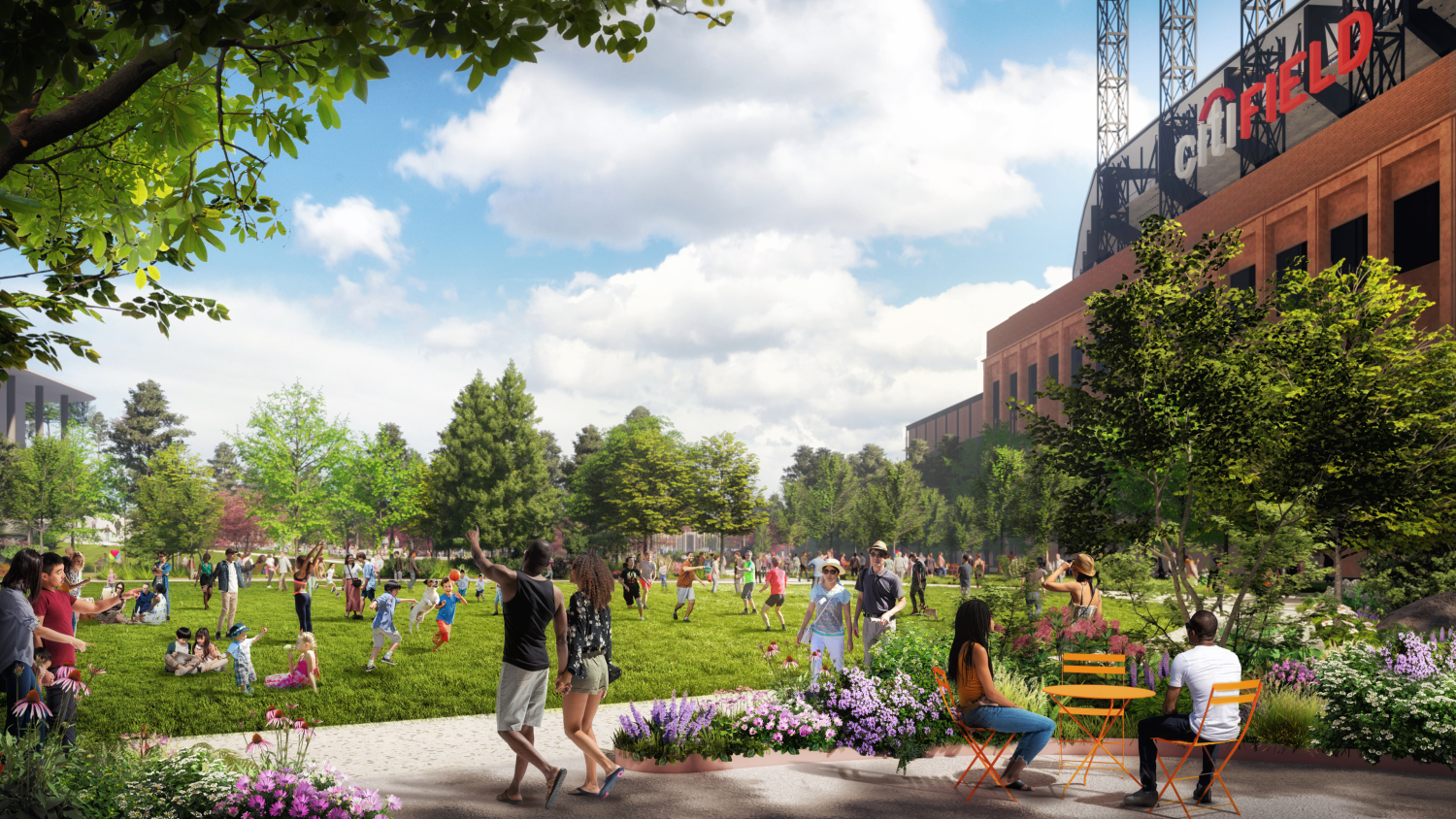
Metropolitan Park Approved By Every Queens Community Board in Land Use Process
5 out of 5 Queens Community Boards Say Yes to Project in Unprecedented Show Of Support;
Community Embrace Breaks History of Queens Projects Failing
Queens, NY – Metropolitan Park, the partnership between Steve Cohen and Hard Rock International, has been overwhelmingly approved by all five of the Queens Community Boards that considered the project through the full community board land use review process. 85% of the voting members of the Community Boards said yes to Metropolitan Park, reflecting the same level of community support the project has seen through two polls and tens of thousands of door to door conversations.
Through the city’s land use approvals process, the Uniform Land Use Review Procedure (ULURP), local elected and appointed officials have the opportunity to review and approve the project’s proposed land use changes. The following Community Boards voted in favor of the project: CB6: 32-6; CB7: 36-4; CB8: 31-4; CB9: 27-3; CB3: 26-8
“It has been our commitment from day one to deliver a project that the community can be proud of and I am grateful we are on the way to make good on that promise,” said New York Mets owner Steve Cohen. “Metropolitan Park will bring 25 acres of public park space, 23,000 good-paying union jobs and long overdue transit improvements. It’s time the world’s greatest borough gets what it deserves.”
“Hard Rock at Metropolitan Park is a long-term investment in Queens and the local community. It’s their feedback and ideas that have made this vision possible,” said Jim Allen, Chairman of Hard Rock International. “We’re excited to be one step closer in bringing our unique brand of world class entertainment to Queens and New York City.”
The 50 acres of asphalt around Citi Field has always been a parking lot. It was first mapped as a park when it was a parking lot for the 1931 World’s Fair being held in Flushing Meadows-Corona Park. As a result, all of the neighboring Community Boards had the opportunity to review the proposal. Most projects are subject to review by one or maybe two Community Boards, not the more than 5
Metropolitan Park engaged with.
From the very beginning, Steve Cohen and his partners at Hard Rock talked about doing this the right way and have engaged the community from the ground up the last four years – 16 community workshops, hundreds of meetings with local leaders, and tens of thousands of conversations with neighbors.
The years of community engagement to create Metropolitan Park and that work has made the difference helping the project succeed where others have failed:
- In 2013, two of the five Community Boards voted against the expansion of the Billie Jean King National Tennis Center – right next door to Metropolitan Park.
- Amazon HQ2 in Long Island City never even made it to a vote by Community Board 2, but faced significant and vocal opposition at board hearings.
Metropolitan Park is a once in a life-time opportunity to transform the 50 acres of asphalt around Citi Field into an economic engine that will create 23,000 competitive-paying union jobs. This reimagined space will bring together neighbors, fans and visitors to enjoy 25 acres of new public park space, improved public transportation and climate infrastructure, live music, a Queens Food Hall and a Hard Rock Hotel and Casino with bars, restaurants and a sportsbook.
About Metropolitan Park
Metropolitan Park, a sports and entertainment park, is a partnership between Steve Cohen and Hard Rock International. This $8 billion private investment will replace the 50 acres of parking lots around Citi Field with 25 acres of public park space and bring entertainment to the site 365 days of the year. Metropolitan Park will consist of a Hard Rock Hotel with restaurants, bars, and conference space, as well as a casino and sportsbook; state-of-the art live music venue featuring locally and internationally known artists, comedians, and entertainers and A Taste of Queens Food Hall. The project is expected to create 23,000 permanent union jobs, provide improved public transit and parking infrastructure, including a transformed 7-line train station that would be made ADA accessible and a $ 1billion Community Benefits Agreement.

